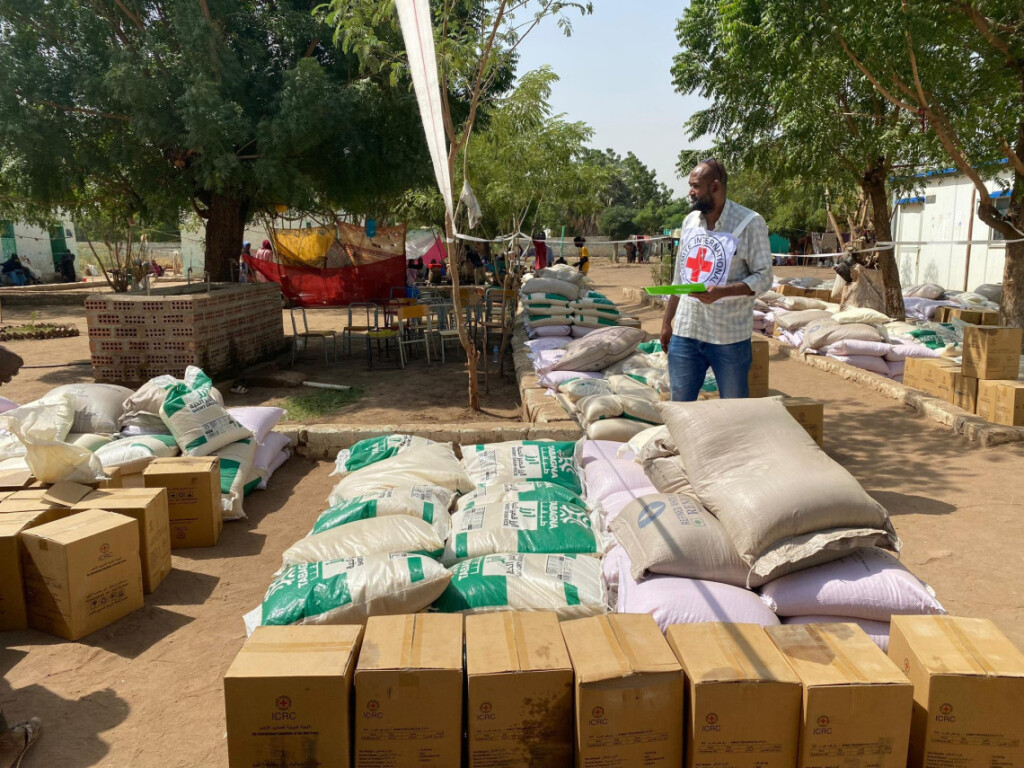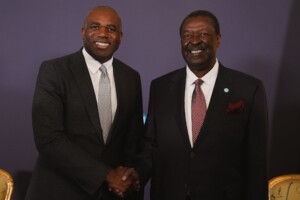UN coordinator urges RSF agency to remove ‘persistent restrictions’ on aid delivery in Sudan

The International Committee of the Red Cross (ICRC) and the Sudanese Red Crescent Society (SRCS) distribute humanitarian aid to displaced people in El Gezira (File photo: ICRC)
The United Nations Resident and Humanitarian Coordinator in Sudan, Clementine Nkweta-Salami has called on the Sudanese Agency for Relief and Humanitarian Operations (SARHO) to allow aid to reach people in need in Sudan.
In a press statement yesterday, Nkweta-Salami, the head of the UN Office for the Coordination of Humanitarian Affairs (OCHA) in Sudan, urged SARHO, set up by the Rapid Support Forces (RSF) in August 2023, to remove the “persistent restrictions and bureaucratic hurdles” it imposes on the distribution of life-saving assistance to those in desperate need.
“Despite repeated commitments made by SARHO, humanitarian actors continue to face obstruction, undue interference, and operational restrictions that contravene international humanitarian law, and the obligations outlined in the Jeddah Declaration of Commitment to Protect the Civilians of Sudan,” she stated.
The Jeddah Declaration was signed by the Sudanese Armed Forces (SAF) and the RSF on May 11, 2023 in the Saudi Arabian port city, to allow safe escape routes and passage of humanitarian aid in the country. Both warring parties, however, have ignored this agreement, and have repeatedly hindered the transport and distribution of humanitarian aid.
Nkweta-Salami deems it “unacceptable that the humanitarian community in Sudan — comprising United Nations agencies, international and local non-governmental organizations — is unable to deliver essential aid due to actions by those who have pledged to facilitate assistance”.
She therefore called on SARHO “to take immediate and concrete measures” to remove “administrative and security obstacles that delay or prevent aid from reaching affected people”, to “ensure the safety of humanitarian workers, assets and operations”, to “simplify bureaucratic procedures for aid convoys”, to “end interference in humanitarian operations”, and to “return to comprehensive and meaningful engagement through dialogue and negotiations with the humanitarian community to guarantee the delivery of urgent life-saving aid.
“The humanitarian community stands ready to work with SARHO and all parties in good faith to ensure that assistance reaches those in urgent need,” she concluded her appeal. “The world is watching.”
The paramilitary RSF controls four of the five Darfur states and parts of North Darfur.
According to the UN World Food Programme (WFP), “Sudan risks becoming the world’s largest hunger crisis in recent history as conflict continues to rage across the country, destroying livelihoods, infrastructure, trade routes and supply chains”.
“A protracted famine is taking hold – the only place in the world at this level of hunger – and without humanitarian assistance, hundreds of thousands could die.
Famine was first confirmed in August in North Darfur’s Zamzam camp and has since spread to four more areas. It is projected in five additional areas in North Darfur, between December and May 2025.
“A total of 24.6 million people (around half the population) are acutely food insecure, while 638,000 (the highest anywhere in the world) face catastrophic levels of hunger,” WFP stated in the end of last year.











 and then
and then